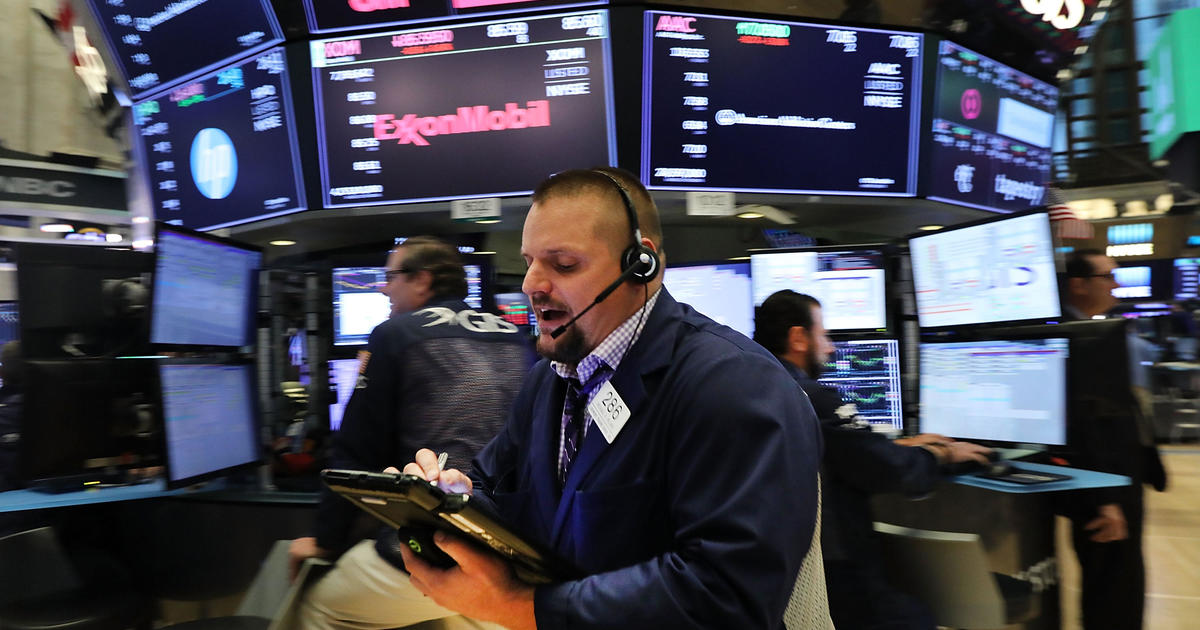
Last Updated Oct 10, 2018 4:04 PM EDT
U.S. stocks dropped sharply Wednesday, as a massive selloff in the biggest technology stocks drove the major indices to lows not seen since this spring.
The Dow Jones industrial average plunged 818 points, losing 3.12 percent of its value at closing time It was the second-biggest drop of the year for the Dow, which on Feb. 5 lost over 1,100 points in a single trading session.
The S&P 500 closed down 94 points, or a loss of 3.3 percent, with the broad market index on pace for its worst day since June. The tech-heavy Nasdaq composite dropped 315 points, or a fall just over 4 percent.
Tech stocks listed in the S&P 500 suffered the steepest loss among the 11 sectors that make up the popular market index. Companies that sell non-essential goods to consumers also dropped sharply. These sectors had been some of the top performers over the last year, helping to nearly double the S&P 500 in the past year.
Stock prices have been hurt lately by fast-rising interest rates that have boosted Treasury yields over the last week. On Wednesday, the 10-year yield once again touched its highest level in seven years.
Earlier on Wednesday, Sears Holdings plunged on reports that the struggling retailer is preparing to file for bankruptcy. The stock fell 35.7 percent to just 38 cents in morning trading. It was more than $40 five years ago. Over the years, Sears has closed hundreds of stores and sold several famous brands.
The biggest driver for the market over the last week has been interest rates, which began spurting higher following several encouraging reports on the economy. Higher rates can slow economic growth, erode corporate profits and make investors less willing to pay high prices for stocks.
The 10-year Treasury yield rose to 3.22 percent from 3.20 percent late Tuesday after earlier touching 3.24 percent. It was at just 3.05 percent early last week. The two-year yield rose to 2.88 percent from 2.87 percent, and the 30-year yield climbed to 3.38 percent from 3.37 percent.
While economists have noticed some increasing trends in the inflation data, there are few signs yet of rapid acceleration. That’s good news for markets: If inflation were to spike, it would push the Federal Reserve to get more aggressive in raising interest rates.
© 2018 CBS Interactive Inc. All Rights Reserved. This material may not be published, broadcast, rewritten, or redistributed. The Associated Press contributed to this report.
